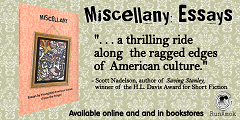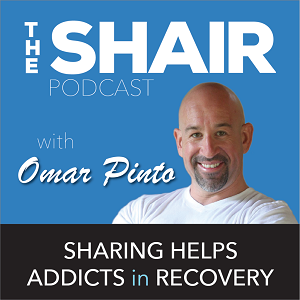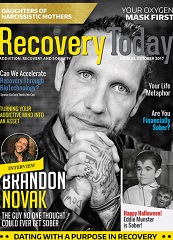Proof
Whether you believe nature or nurture is more determinate of a child’s character, a parent doesn’t have an excuse.
If nature determines who we are most than our genes offer with the best insight into the human beings our children will become. If how we nurture them determines who we are, than their actions become a product of our commitment to parenthood.
I’ve been on both sides of this debate before. Experience tells me that alcoholism is in the family, for example. A large medical horde still search for the magic gene which produces alcoholism, and, with the help of modern science, hope to vanquish the disease once and for all.
Then I read Gabor Maté’s In the Realm of Hungry Ghosts. Maté argues that things like alcoholism don’t have a genetic component whatsoever. They are entirely cultivated by the environments in which we are raised. And the fact that alcoholism often transfers, say, from father to son, is not a function of genetics, but of experiential trauma passed down through the generations.
I’m not sure where I fall on the debate anymore. I have plenty of life experience to give me hunches about which core influence is greater, but I lack the research capacity and interest to pursue it further. There’s really nothing I can do when it comes to my kids and this disease. Because, if there is anything that could be done, I am convinced I am doing all I can to stamp it out in our family. My wife and my kids have never seen me take a drink. And what’s more, I actively work on myself to treat these symptoms of alcoholism that arise without alcohol present. I may not be doing things right. But I’m doing them as best as I know how. And, of course, if it’s in their genes, then there’s not much I can do in the first place.
I think there are way more important realities to pay attention to it comes to raising children.
What’s more, those more important realities prove that God exists, that we are made as much as we are born into this world. God makes the nature and nurture debate moot. It changes the debate by reorienting the control center of the family.
Each of my three children is radically different from the other. And While I can see parts of my personality in each of them – parts of my wife’s personality, too – there is no ratio of nature to nurture that exists to explain who they are.
The best parts of them are the parts I cannot explain, the parts that I don’t recognize in myself, the parts I could never change no matter how hard I work to change them. The parts that arise spontaneously from the silliness of summer mornings.
Take my eldest’s love of history.
Demonstrations of his inherent passion for the subject are everywhere. In fact, I’ve virtually filled a book with them — it will be for sale soon. He now enters his fifth-grade year which is devoted to United States history having studied it already. His devotion to the subject shows me how to admire my children rather than take pride in them, something my sponsor always encourages me to do.
My older daughter loves rhythmic gymnastics, the kind of gymnastics involving apparatus like ribbons in each routine. She has never wavered in that interest since she saw a single three-minute YouTube clip of an Olympic routine some three years ago.
My youngest is an absolute princess. She gets dressed in gowns and tiaras every morning. She owns three different royal scepters and knows how to color coordinate them to her dress of choice.
Seeing each of them grow and flourish in the uniqueness of their personalities over time has convinced me just how little I have to do with this thing we call their soul. It does not align with my own and there’s nothing I can do to change its course.
So, what sort of explanation can a rational man use to describe this indwelling creative intelligence?
Is it natural selection that fills them with quirks? Is it genetics? Maybe there’s a dissertation out there that examines how education intersects with culture to produce a predictable set of interests. I could read all the academic literature written on the subject of the human personality and be no more convinced of what I know now to be true. God gave them a soul, unique to themselves. One that speaks to the exactness of their existence and no one else’s.
So, what of parents, then? Are we destined to be the hole in the donut of our children’s lives? Of course not. But we don’t have to be the icing on their cake, either.
It is calming to think that I am not responsible for the most important thing in their lives, that it is a fact already given to them by virtue of their entrance into this world. I don’t have to take their actions personally. Nor do I have to correct them with a heavy hand. For their greatest interest in life is discovering something I can’t give them.
Accepting the existence of God has radically changed my life for the better.
I no longer have an alcohol problem because I no longer need a social lubricant to feel comfortable with who I am. To learn that I am as God made me – for if God knows each grain of sand in the desert, God surely knows each hair on my head – relieved me of the immense pressure and anxiety that used to pervade my life.
So the best thing I can do for my children is get out of the way. Instead of hoping they become more like me, encourage them to be more like them. I can show them how to meet their maker because we believe in the one God behind all that was, all that is, and all that will be.
What a relief. And what a thrill, as well.

 Previous Post
Previous Post Next Post
Next Post












Well said Mark, my faith has come and gone over the years but when I was at my lowest point, I called on him once again he was there, he healed me and now our relationship is whole.